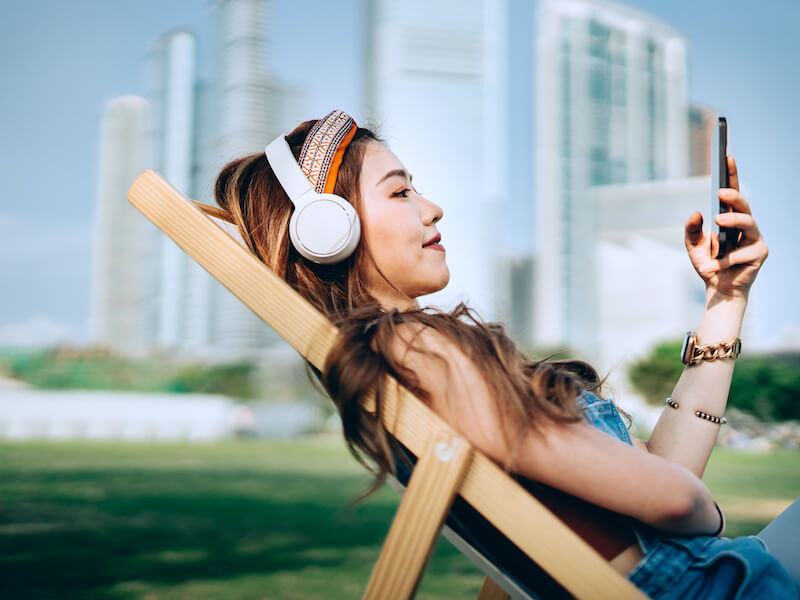
Music is an important part of Aiden’s life. While he’s out running, he listens to Pandora, while working it’s Spotify, and he has a playlist for all his activities: cardio, cooking, video games, you name it. Everything in his life has a soundtrack and it’s playing on his headphones. But the exact thing that Aiden enjoys, the loud, immersive music, could be causing irreversible damage to his hearing.
There are ways to listen to music that are safe for your ears and ways that are not so safe. But the more hazardous listening option is usually the one most of us choose.
How can hearing loss be the result of listening to music?
As time passes, loud noises can lead to deterioration of your hearing abilities. We’re used to thinking of hearing loss as an issue associated with aging, but current research is showing that hearing loss isn’t an intrinsic part of aging but is instead, the result of accumulated noise damage.
It also turns out that younger ears are particularly vulnerable to noise-related damage (they’re still developing, after all). And yet, young adults are more likely to be dismissive of the long-term risks of high volume. So because of extensive high volume headphone use, there has become an epidemic of hearing loss in young people.
Is there a safe way to enjoy music?
Unrestricted max volume is obviously the “hazardous” way to enjoy music. But there is a safer way to listen to your tunes, and it normally involves turning down the volume. Here are a couple of general recommendations:
- For adults: 40 hours or less of weekly listening on a device and keep the volume below 80dB.
- For teens and young children: You can still listen for 40 hours, but the volume should still be below 75dB.
About five hours and forty minutes a day will be about forty hours every week. That may seem like a lot, but it can go by fairly quickly. Even still, most people have a fairly solid idea of keeping track of time, it’s something we’re trained to do effectively from a very young age.
Keeping track of volume is a little less intuitive. Volume isn’t gauged in decibels on the majority of smart devices like TVs, computers, and smartphones. It’s calculated on some arbitrary scale. Perhaps it’s 1-100. Or it might be 1-10. You may not have any idea how close to max volume you are or even what max volume on your device is.
How can you keep tabs on the volume of your music?
There are some non-intrusive, easy ways to figure out just how loud the volume on your music really is, because it’s not very easy for us to conceptualize exactly what 80dB sounds like. Distinguishing 75 from, let’s say, 80 decibels is even more puzzling.
So using one of the many noise free monitoring apps is highly recommended. Real-time readouts of the noise around you will be obtainable from both iPhone and Android apps. That way you can monitor the dB level of your music in real-time and make alterations. Or, when listening to music, you can also modify your settings in your smartphone which will efficiently let you know that your volume is too loud.
The volume of a garbage disposal
Your garbage disposal or dishwasher is generally around 80 decibels. That’s not too loud. It’s a relevant observation because 80dB is about as loud as your ears can take without damage.
So you’ll want to be extra mindful of those times when you’re moving beyond that volume threshold. And minimize your exposure if you do listen to music over 80dB. Maybe minimize loud listening to a song instead of an album.
Listening to music at a loud volume can and will cause you to have hearing problems over the long term. You can develop tinnitus and hearing loss. The more you can be conscious of when your ears are entering the danger zone, the more educated your decision-making will be. And safer listening will hopefully be part of those decisions.
Give us a call if you still have questions about the safety of your ears.






